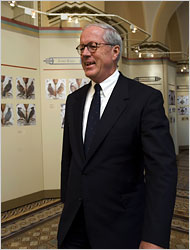In his poems praising various people, Bobi Jones writes a poem to the poet. The Celtic poets use the discipline of constant praise to offer thanks, challenge status quo, offer social commentary and more.
Such a praising of the harvesting of the keeping–the baby’s life,
The lad’s life, the old man’s life behind your door.*
Bobi realizes that the poet connects the generations. And for a people crushed either personally or as a nation, the poet transforms that pain:
And you turned the blows as well into a praise of living.
These Welsh poets have personally gifted me with the habit of praise, of sight to praise and as Bobi says, of learning to transform the struggles and blows in this world into a “praise of living.”
The poet offers everything–the very essence of his life–in service to the gift.
From your immense Preselau** you raised teh walls of your belonging
And in the presence of its sun’s rafters you consecrated your laughter’s values:
You made your people one in a mystery sea.
You included us in your family. You sang
The white guts of your praise and your being, and you planted
Your leaves in our back-garden in proper robes like a choir.
* – Bobi Jones writes poetry exclusively in Welsh, so when I quote him, I am quoting Joseph Clancy’s translations.
** – Preselau or Presely Hills, a place in Wales (whose location is in question). I think this poem is using it as a way of identifying the land of the poet (which like the ancient Hebrew is connected with his salvation).





